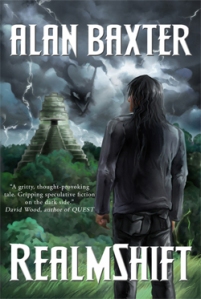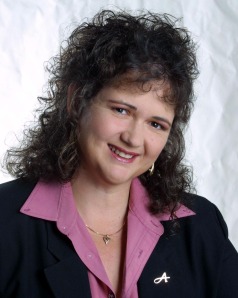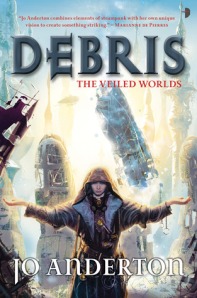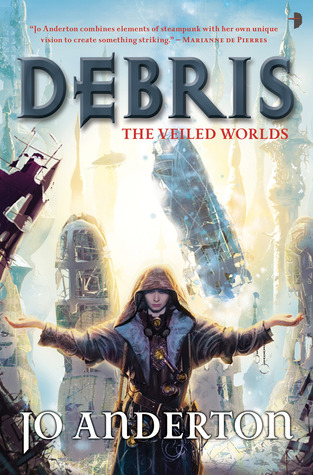As the next of my series featuring fantastic female fantasy authors (see disclaimer) I’ve invited the talented Tara Moss to drop by.
[youtube=http://www.youtube.com/watch?v=Y7TdApnhmGE&feature=player_embedded]
Q: It’s funny that you should be at the women crime writers conference, then write a post about gender bias in publishing(with a follow up post), because I’ve been running a series of interviews on this topic. Were you surprised by the intensity of the reaction to your post?
I was particularly surprised by the swift reaction of Mr. Woodhead – particularly as he identified himself as a reviewer for the Age and was very quick to dismiss the blog as ‘privileged whining’. Ironically, though I do write opinion pieces, that particular post contained very little opinion. It was a casual blog, reporting statistics relevant to gender bias, the creation of the Stella Prize and info about the SheKilda crime festival I had just returned from. Honestly, I did not imagine it would cause such controversy, though I do think the responses reveal something important about the current climate surrounding gender issues.
 Q: The SheKilda conference was run by Sisters in Crime. Even though the Australian chapter has been established 20 years and the original US chapter was established 25 years ago, there still seems to be a need for an organisation specifically to celebrate crime written by women. I have seen comments by male readers to the effect that they simply wouldn’t read a book written by a woman. When you started out writing did you consider using a gender-neutral name like T Moss?
Q: The SheKilda conference was run by Sisters in Crime. Even though the Australian chapter has been established 20 years and the original US chapter was established 25 years ago, there still seems to be a need for an organisation specifically to celebrate crime written by women. I have seen comments by male readers to the effect that they simply wouldn’t read a book written by a woman. When you started out writing did you consider using a gender-neutral name like T Moss?
I have never considered presenting my work as gender neutral, either in name or in style, though I don’t begrudge those who have made that choice, or who have had that choice made for them by publishers. Many of the greats, PD James, JK Rowling have made that choice. In Brazil, my novels are published under T.Moss, though that happened without my involvement and I only found out later.
[youtube=http://www.youtube.com/watch?v=Ij60AS2DHVQ]
Q: So many of the authors I interview write across several genres and across age groups. You have your Makedde Vanderwall crime thrillers (five so far) and the first book of your Young Adult Pandora English series has been released. I believe you have a young daughter. Are you tempted to try your hand at children’s books?
 I’m writing a sixth novel in my crime series at the moment, and my second paranormal book with Pandora English will be out in a matter of weeks, so my writing schedule has been pretty packed this year, but I have had a children’s book series on the back burner for years now. Now that I am reading to my daughter each night, I may be closer to making that series a reality. Let’s just say that if I do make it happen, it won’t be about kittens with mittens.
I’m writing a sixth novel in my crime series at the moment, and my second paranormal book with Pandora English will be out in a matter of weeks, so my writing schedule has been pretty packed this year, but I have had a children’s book series on the back burner for years now. Now that I am reading to my daughter each night, I may be closer to making that series a reality. Let’s just say that if I do make it happen, it won’t be about kittens with mittens.
Q: You’ve certainly immersed yourself in your research: spent time in squad cars, morgues, prisons, taken a polygraph test, shot weapons, conducted surveillance, acquired your CMAS race driver licences, been set on fire by a Hollywood stunt company and been choked unconscious by a professional fighter, all in the name of authenticity. Is there anything left that you’d still like to gain first-hand experience with? A trip to the moon perhaps?
If you have a spare ticket to the moon, I’d love to go for the ride. Truthfully, I am always looking for new opportunities to experience the world as others do, and to face my fears and push my own personal boundaries.
Q: You are a UNICEF Goodwill Ambassador and an ambassador for the Royal Institute for the Deaf and Blind Children. What exactly does this entail and how did it come about?
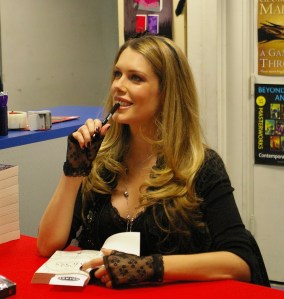 I’ve been an ambassador for the Royal Institute for Deaf and Blind Children for over a decade now, and I am really impressed by what they do for children who are visual or hearing impaired, and their families. They help to close the learning gap and ensure a life enriched by literacy. I host their annual charity flight, which is their biggest fundraiser each year, and I lend my hand to other activities for them where I am able, whether it is visiting the schools at the institute or promoting their work.
I’ve been an ambassador for the Royal Institute for Deaf and Blind Children for over a decade now, and I am really impressed by what they do for children who are visual or hearing impaired, and their families. They help to close the learning gap and ensure a life enriched by literacy. I host their annual charity flight, which is their biggest fundraiser each year, and I lend my hand to other activities for them where I am able, whether it is visiting the schools at the institute or promoting their work.
My involvement with UNICEF began in 2007 when they appointed me a Goodwill Ambassador, and they recently gave me a larger role, appointing me UNICEF Patron for Breastfeeding for the Baby Friendly Health Initiative (BFHI) in Australia, which involves advocating for breastfeeding women in hospitals, the workforce and general community, promoting breastfeeding as the normal and healthy practice that it is, and hopefully combating some of the misinformation on the topic. BFHI is a program spearheaded by the World Health Organization and UNICEF to support mothers and babies, with the aim to hopefully raise the rate of breastfeeding in Australia to the world standard. (The exclusive breastfeeding rate here is about half the world average at the moment) I encourage expectant mothers to choose a BFHI accredited hospital if they can, or to ask for BFHI protocols in their birth plan.
(For more information see here)
Q: You lost your mother while in your teens (I can’t imagine the gap this would leave), and you now have a baby daughter. It wasn’t until I had children of my own that I began to appreciate the dedication it takes to rear a child. Do you feel closer to your mother, even though she is no longer with us, now that you have a child?
My mother, Janni, passed away 21 years ago, and I still think of her every day. The evening my daughter was born was emotional for me on a number of levels. It was a beautiful time, but also bitter sweet, as I felt the loss of my mother particularly keenly that day. But I felt her presence as well. Our mothers never really leave us.
Q: You host the true crime documentary series Tough Nuts – Australia’s Hardest Criminals for the Crime and Investigation Network, and you do a series of author interviews for 13th Street Universal Channel called: Tara Moss in Conversation. This must take up a lot of your time, what with the research and the actual filming. How do you get time to write? Do you have a routine that you stick to?
I’ve always been quite self-motivated as a person but in the past couple of years I’ve had to become good at time management, particularly since giving birth to my daughter. I abhor routine, however. I love what I do and I just dive in and do it as best I can. I have a personal motto of sorts, which is that life is too short to live the same day twice. Thankfully, life holds a lot of adventure for me – if not very much sleep. I love the contrast of television work, journalism and fiction writing. Each provides a different challenge.
[youtube=http://www.youtube.com/watch?v=hR1hGkwKWqE&feature=related]
Q: I believe there is a new Pandora English book due out soon, The Spider Goddess. Why spiders? Are you phobic about spiders?
I am intrigued by ancient mythology and folklore, and the fable of The Spider Goddess caught my eye. As with The Blood Countess, I took truth and legend and wove it into a modern tale, set in an alternate New York. I wasn’t arachnophobic to begin with, but…
Q: I was prompted to start this series of interviews because there seems to be a perception in the US and the UK that fantasy is a bit of a boy’s club. Do you think there’s a difference in the way males and females write fantasy?
Men and women don’t necessarily write fantasy differently because of gender, although more women tend to write female leads, and more men tend to write male leads. I love stories with great female characters, but I read everyone from HP Lovecraft and Neil Gaiman to Charlaine Harris and Marianne de Pierres.
Q: Following on from that, does the gender of the writer change your expectations when you pick up their book?
If it does, I think that change in perception is largely unconscious.
Q: And here’s the fun question. If you could book a trip on a time machine, where and when would you go, and why?
My time machine would take me to Mary Wollstonecraft’s bedside in 1797, as she gave birth to Frankenstein creator Mary Shelley. I would keep the doctor away, or teach him about disinfecting his hands, so she would not die of puerperal fever, the ‘doctor’s plague’ that killed women and children for two centuries before germ theory was better understood. I often wonder what more Wollstonecraft, the author of Vindication of the Rights of Woman, would have achieved if she hadn’t been taken from us so young.
Follow Tara on Twitter: @Tara_Moss
See Tara’s Blog
Catch up with Tara on Facebook
Catch up with Tara on GoodReads
Catch up with Tara on Facebook



